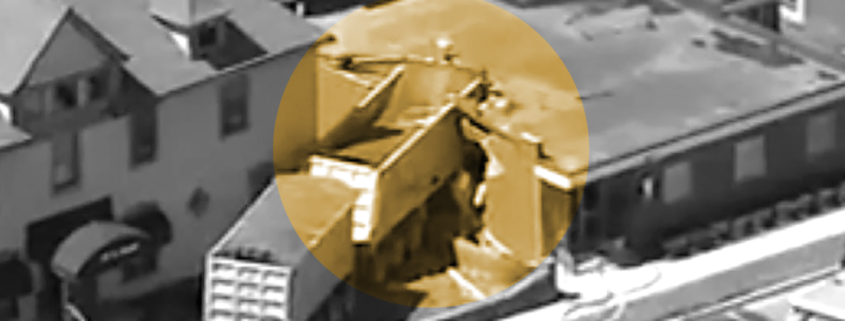Lessons Learned Through Disaster
We’re all struggling through the coronavirus pandemic and, beyond worrying about the health of our family and friends, are wondering when it will end and how it will affect our dental practices.
Though certainly less dire on the universal scale, I can’t help but think back to my own personal disaster in April 2018 when a semi-truck crashed through my dental office in Clarkston, Michigan. We were open at the time but thankfully (and somewhat miraculously) no one was hurt, and even the driver had only relatively minor injuries. But as a small business owner, I was in for a world of hurt that lingers to this day. My practice, one of eight that I own, was shut down for five months and I’m still dealing with the financial repercussions two years later.
I’d like to share some of the insights and lessons I learned from that incident.
- When you buy or open a practice, you must also purchase insurance – but let’s face it, most of us do so blindly, just following our agent’s advice. I learned the hard way that I was quite underinsured on my building, which sustained significant damage. In fact, I just escaped being penalized by my insurance company for being underinsured. Do you understand, really understand, your practice’s insurance policy? It’s more likely than not that you are underinsured. Don’t put off finding out.
- If you do need to make a major claim, consider hiring a public adjuster to negotiate and maximize your benefits with the insurance company. That proved to be one of the very best things I did, and they found coverage I didn’t even realize I had. For example, I had an “extra expense” policy that allowed me open a nice and suitable temporary location. (The insurance company first pointed me to a nasty portable clinic complete with dirty surfaces and rickety folding chairs.)
- Banks are willing to help. It never occurred to me to reach out to my bank and ask for deferred mortgage payments on that practice and real estate. So even though I suffered a massive drop in income, I was still making my payments. Frankly, I was actually afraid to tell my bank for fear they would be so concerned about my financial stability that they’d call in my loan. In fact, they were eager to help – and happily, that’s also true during my shutdown during this pandemic.
- Perhaps most importantly, don’t be afraid to reach out to your colleagues. I was so glad to learn that we dentists are a very tight and supportive community. One specialist generously offered me the use of his office when it was normally closed, at no charge. It was enough to at least keep our hygiene practice up and running. It was only 10% of the capacity I was used to, but it was something.
- I chose to pay my employees for the five months we were down before opening our temporary office because I had assembled such a great team, I didn’t want to lose them to another practice. But honestly, it cost me a fortune! One of the biggest lessons I learned is how important it is to have deep reserves on hand. I thought I had plenty tucked away for a rainy day, but I had to turn to family for financial help to help me make payroll. Of course with this current crisis, it probably makes more sense to temporarily lay off your workers, though it’s a painful choice.
- Reach out and keep in touch with your staff. They are scared and vulnerable, and they are worried about their future. Let them know you are thinking of them and will be up and running just as soon as possible. Encourage your core managers to do the same with their teams.
- Consider sending an email or letter to your patients, too. Remind them to continue maintaining their oral health and that you’re eager to see them when this is all over.
As we all continue to encourage our staff and patients, don’t forget to take care of yourself. We are all in this together and we will come out of this better equipped for the future.
Please do not hesitate to reach out to me during this difficult time. I coach on all matters relating to dental practices and am ready and eager to help.


